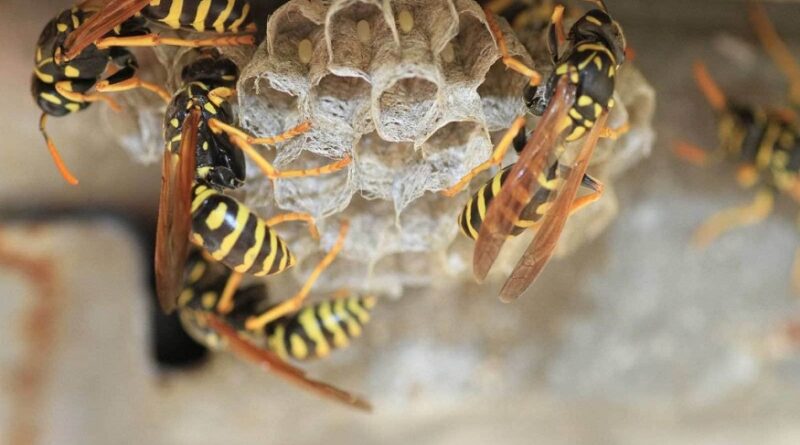The Ultimate Guide to Safe Wasp Nest Removal Techniques
Wasps can be a real nuisance, especially for people allergic to painful stings. However, wasp infestations can be prevented by cleaning your yard and removing old nests.
If you see a wasp’swasp’s nest, try spraying it with store-bought wasp spray late in the evening when they are least active. This method will also work for wasps invading your house through tiny cracks around the eaves or inside the walls.
Relocate the Nest
Wasps will sting you if they feel their nest is threatened, so avoiding accidentally triggering them is essential. Ensure you have proper personal protective equipment and plan your escape route if necessary. Using bright light or sudden movements can signal danger to the colony and result in painful stings.
To reduce the risk of confrontation: Try to locate and remove wasps and nests at night; look under eaves, around trees and bushes, and behind outdoor fixtures for their nests; keep pets and children away from the area while you deal with wasps, as they can quickly become agitated when handled. You can also use a garden hose to spray soapy water at the nest entrance, as this will clog wasps’ wasps breathing pores and kill them.
Spray the Nest with Soapy Water
Soapy water is another effective option for not using freeze or dust. You can prepare this solution by mixing equal parts hot water and liquid dish soap. Pour the solution over the nest to drench it, then wait.
The soapy water confuses the wasps and prevents them from consuming oxygen through their thorax. They will die in this state. This method also works best for paper wasps and other small wasp colonies that are easy to get close to, but you still need to be careful.
Calling a professional is a good idea if you are dealing with a large wasps nest removal, difficult-to-reach nest, or another type of wasp colony. These professionals can safely treat the area and ensure any remaining wasps are dead.
Spray the Nest with Aerosol Sprays
If you are comfortable using chemical sprays, you can kill a wasp or hornet nest with a liquid pesticide. Choose a product labeled for use on wasps and follow the instructions carefully. This method works best when sprayed at night when wasps are less active and aggressive.
Aim the spray at the entrance and exit openings of the nest and continue to spray until it is thoroughly soaked. Use wide circles to achieve even coverage.
You can also buy residual liquid insecticides to spray around the area where you suspect a wasp or hornet colony may be located, such as under roof rafters or in other gaps and crevices. This prevents new nests from forming.
Spray the Nest with Dust
Wasps can be particularly aggressive if their nest is disturbed. This is because they can release pheromones to alert others in the area that the nest is being attacked.
Pouring a bucket of water onto a wasp nest accomplishes two things: it kills scores of wasps and destroys their home. However, wearing complete personal protective equipment is essential when performing this task.
Another safe method of killing wasps and hornets is to use insecticidal dust. Purchase a dust label on wasps and hornets and load it into a bulb duster. Then, dust the nest entrance and immediately vacate the area. Repeat this process until the nest is dead. This is a safer alternative to using aerosol sprays on hard-to-reach nests.
Remove the Nest
Lastly, sanitize the area from which you remove the nest to prevent pets and wildlife prowling the area from ingesting dead wasps that could be poisonous. Some suggest tying the nest into a bag and putting it in a trash bin away from your home.
Alternatively, spraying the nest with water can also be effective. Using a hose-end spray bottle, aim a stream of soapy water at the nest entrance to clog its breathing pores and kill wasps instantly.
For a more targeted attack, try spraying the nest at night time when wasps are less active and less aggressive. Avoid lighting the roost, as this will alert aggravated wasps to your presence and may damage your home’shome’s structure. Hire a pest control company if you need more time or courage to tackle the task.

